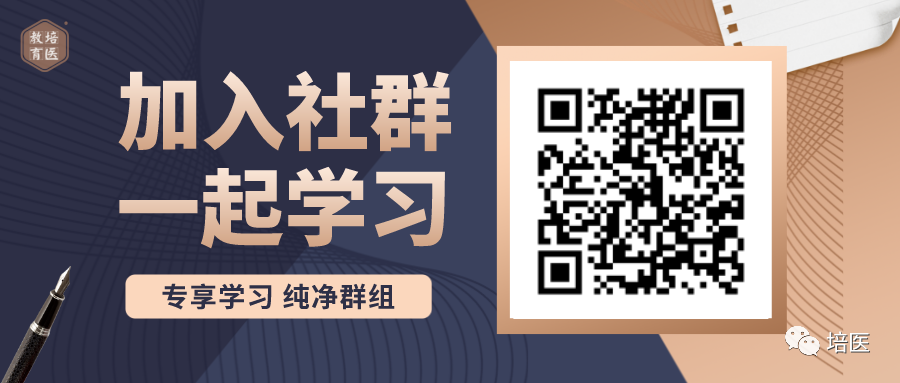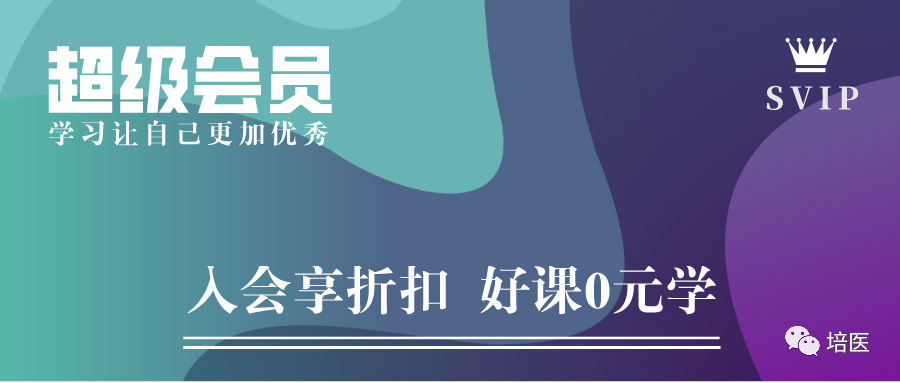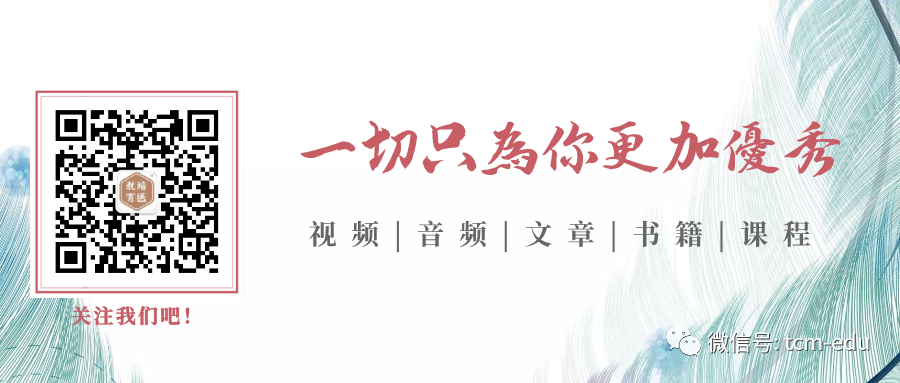Subscribe to Topics and Featured Articles
Health Preservation Strategies for Yin Deficiency Constitution—Nourishing Yin, Moistening Dryness, Clearing Heat, and Relieving Irritation
Yin Deficiency Constitution (Water Deficiency Type)—Insufficient internal moisture, lack of nourishmentIndividuals with a Yin deficiency constitution are often slender and tall, frequently experiencing dry eyes, dry mouth and throat, a constant desire to drink water, and dry stools. We colloquially refer to them as the “Water Deficiency Type.” Such individuals often feel heat in their palms and soles, have a flushed or reddish face, cannot tolerate the heat of summer, and prefer to eat ice cream in the cold winter while feeling hot in their palms and soles at night, wishing to place ice cubes under their feet. Some believe this is due to youth and strong vitality, but little do they know that these individuals may actually have a Yin deficiency constitution.
1. What is Yin Deficiency Constitution?
The Yin deficiency constitution refers to a state characterized by a deficiency of bodily fluids, blood, and other Yin substances, primarily manifested as internal heat due to Yin deficiency. Yin deficiency indicates a lack of essential fluids such as essence, blood, and semen. Approximately 8.98% of the population has a Yin deficiency constitution, which is more common in the windy, dry, and high UV radiation areas of western China. Many students and young people enjoy fried, grilled, and barbecued foods, some have a penchant for smoking and drinking, and others suffer from excessive life stress, making them more susceptible to Yin deficiency. Additionally, women are also commonly affected due to physiological processes such as menstruation, pregnancy, and lactation, which consume blood, a Yin substance, leading to a higher incidence of Yin deficiency constitution.
2. Characteristics of Yin Deficiency Constitution
1. General Characteristics
Deficiency of Yin fluids, primarily manifested as dry mouth and throat, heat in the palms and soles, and other signs of false heat.
2. Physical Characteristics
Generally slender physique.
3. Common Manifestations
Main Symptoms: Heat in the palms and soles, frequent dry mouth and throat, slightly dry nose, thirst with a preference for cold drinks, dry stools, red tongue with little moisture, and scanty coating.
Accompanying Symptoms: Flushed complexion, feeling of heat, dry eyes, blurred vision, slightly dry and red lips, dry skin prone to wrinkles, dizziness, tinnitus, poor sleep, short and scanty urination, and thin, rapid pulse.
4. Psychological Characteristics
Impatient temperament, extroverted, active, and lively.
5. Disease Tendencies
Prone to diseases related to Yin deficiency and dryness heat, or may exhibit Yin deficiency symptoms after illness. Common conditions include chronic gastrointestinal diseases, diabetes, chronic pharyngitis, oral ulcers, hyperthyroidism, insomnia, constipation, and menopausal syndrome.
6. Adaptability to External Environment
Better tolerance to winter than summer, and poor tolerance to heat, dryness, and hot pathogens.
3. Check if You Have a Yin Deficiency Constitution
1. Do you feel heat in your palms and soles? (Yes)
2. Do you feel heat in your body or face? (Yes)
3. Is your skin or lips dry? (Yes)
4. Are your lips redder than average? (Yes)
5. Do you often experience constipation or dry stools? (Yes)
6. Do your cheeks appear flushed or reddish? (Yes)
7. Do you feel dry eyes? (Yes)
8. Do you feel dry mouth and throat, constantly wanting to drink water? (Yes)
If most of your answers are the same or very close to the standard answers, you can be determined to have this constitution.
4. Typical Case
Ms. He is the owner of a foreign trade company, slender and fashionable, and loves to talk with a cheerful personality. Overall, her health is good, but she often experiences dry eyes, sweaty palms, an impatient temperament, and tends to vent her anger on her children when emotionally agitated.
4. Constitution Analysis
Ms. He is a typical case of Yin deficiency constitution.
The Yin deficiency constitution refers to a state where the normal bodily fluids, blood, and other Yin substances are insufficient, leading to a loss of nourishment in related organs and the emergence of internal heat. In simple terms, it is characterized by insufficient moisture and the generation of internal heat.
In the human body, bodily fluids, blood, and moisture all belong to the category of “Yin.” In nature, the sun provides energy, while water nourishes the world. Without water, rivers dry up, and land cracks, causing plants to wither. The human body is like a small ecosystem; one can survive without food for 7-10 days, but without water, one cannot survive for more than 3 days. When water is scarce, bodily fluids are insufficient, leading to thirst. If the large intestine lacks moisture, stools will become dry and difficult to pass, potentially leading to anal fissures and hemorrhoids. If the skin lacks moisture, it will become dry and prone to wrinkles, and even the best moisturizers will not help, as the fundamental issue of lack of deep moisture has not been addressed.
“Yin and Yang are the principles of the Dao.” Under normal circumstances, the balance between Yin and Yang should be stable. If the substances belonging to “Yin” are insufficient, the “Yang” part will appear relatively vigorous, leading to a phenomenon of internal heat disturbance. This results in flushed cheeks, heat in the palms and soles, excitement, and irritability. Such individuals may appear energetic and healthy, but their bodies are actually in a deficient state and cannot withstand repeated stress.
The formation of Yin deficiency constitution can be attributed to both congenital factors, such as a weak maternal constitution during pregnancy, advanced maternal age, or premature birth, and acquired factors, such as excessive indulgence, overwork, dietary imbalance, and seasonal changes. Many modern young people live at a fast pace, experience greater stress than before, and have significant mental exhaustion; their physical and especially mental energy is depleted, often staying up late and lacking sleep. Their dietary preferences lean towards spicy and stimulating flavors, which over time can lead to autonomic nervous system disorders. If they do not pay attention to nourishment, they may easily fall prey to Yin deficiency, just like Ms. He.
Health Preservation Strategies for Yin Deficiency Constitution—Nourishing Yin, Moistening Dryness, Clearing Heat, and Relieving Irritation
When discussing Yin deficiency constitution, the focus is on the deficiency of “Yin” in the body. What constitutes the body’s “Yin”? Traditional Chinese medicine believes that essence, blood, and bodily fluids are all considered Yin substances. Therefore, “Yin deficiency” can manifest as essence deficiency, blood deficiency, and fluid deficiency. Additionally, the term “Yin” conveys a sense of tranquility, coolness, and inhibition. Individuals with a Yin deficiency constitution often exhibit impatience and irritability in their temperament. It is easy to understand that Yin deficiency constitution refers to a type characterized by insufficient bodily fluids, primarily manifested as internal heat due to Yin deficiency. Common symptoms include a slender physique, dry skin, flushed complexion, heat in the palms and soles, dry mouth with a preference for cold drinks, dry stools, and short, scanty urination; they tend to be impatient, extroverted, and active; and are prone to diseases related to Yin deficiency and dryness heat, or may exhibit Yin deficiency symptoms after illness.
The health preservation principles for individuals with a Yin deficiency constitution are to nourish Yin, clear heat, nourish blood, and moisten dryness. They should pay attention to nourishing Yin fluids, primarily consuming foods that are sweet, cool, and moistening, while avoiding warm and drying foods; maintaining a regular lifestyle, living in a quiet environment, and avoiding staying up late, intense exercise, and working in high temperatures.
Exercise for Health—Incorporating Movement into Stillness, Moderation is Key
For individuals with a Yin deficiency constitution, due to insufficient Yin fluids and relatively excessive Yang energy, high-intensity and high-volume exercise is not advisable. They should avoid exercising in hot and humid environments to prevent excessive sweating, which can further deplete Yin fluids.
1. Should individuals with a Yin deficiency constitution avoid exercise altogether?
No, this is a misconception!
Individuals with a Yin deficiency constitution are often slender elderly individuals, chronic disease patients, or those recovering from serious illnesses. Moderate physical exercise is beneficial for health. However, because individuals with a Yin deficiency constitution are prone to symptoms of heat and restlessness, some may be reluctant or afraid to exercise, which is incorrect. Long-term inactivity can lead to a gradual dissipation of Yang energy, resulting in Yang deficiency symptoms, ultimately leading to both Yin and Yang deficiency.
It is important to encourage individuals with a Yin deficiency constitution to engage in low-intensity exercises, preferably in well-ventilated and cool places, and each exercise session should not be too long. Following the principle of “incorporating movement into stillness, moderation is key,” they should avoid excessive sweating, as it can damage internal Yin fluids.
2. What types of exercise are suitable for individuals with a Yin deficiency constitution?
Individuals with a Yin deficiency constitution are suitable for low-intensity and low-difficulty exercises, such as Tai Chi and other traditional health-preserving exercises, “Xu” character breathing exercises, and swimming.
1. Traditional Health-Preserving Exercises
2. “Xu” Character Breathing Exercise
The “Xu” character breathing exercise is one of the traditional health-preserving techniques in TCM, which can nourish liver Qi. Individuals with a Yin deficiency constitution often have insufficient liver blood, and relatively excessive liver Yang, leading to symptoms such as irritability and dry mouth. The “Xu” character breathing exercise nourishes liver Qi while also nourishing liver blood and moistening liver Yin.
Key Points: Stand with arms naturally hanging down, feet shoulder-width apart. Use abdominal breathing, inhaling through the nose and exhaling through the mouth. Close the mouth while inhaling, pressing the tongue against the palate, and while exhaling, open the eyes wide, contract the abdomen, and lift the anus while making a “Xu” sound. Perform this exercise once in the morning and once in the evening for best results. Control sweating during exercise and replenish fluids in a timely manner.
3. Swimming
Individuals with a Yin deficiency constitution often have dry skin, and swimming not only provides physical exercise but also alleviates dry skin symptoms, although sauna is not advisable.
Entertainment for Health—Tea and Books, Calmness Enhances Longevity
Individuals with a Yin deficiency constitution are often extroverted and restless, frequently exhibiting impatience and irritability, making it difficult for them to calm down. Activities such as tea tasting, reading, listening to soft music, and forest trips can help adjust emotions, calm the mind, and accumulate Yin energy.
Tea Tasting and Life Conversations
Individuals with a Yin deficiency constitution tend to enjoy noisy entertainment venues like KTV and bars, which are actually detrimental to health. Inviting a few friends to a quiet and elegant tea house for tea is much more beneficial.
In a quiet environment, tea tasting can relieve tension, and the tea itself can nourish Yin and moisten dryness. Engaging in life conversations with good friends naturally brings peace to the body and mind.
Forest Trips are More Suitable for Individuals with Yin Deficiency
The fresh and humid air in forests, rich in negative oxygen ions, is ideal for individuals with a Yin deficiency constitution. They should avoid direct sunlight and limit travel to modern cities. Finding a place with mountains and water, enjoying the scenery, tasting fresh fruits and vegetables, and breathing clean, moist air is the best form of entertainment and relaxation for individuals with a Yin deficiency constitution. Staying in a lodge or with locals for a period is even better.
Drifting for Relaxation is Beneficial for Health
Drifting is a popular form of entertainment, especially suitable for individuals with a Yin deficiency constitution in summer. Drifting is a water-related activity typically conducted in mountainous streams. Individuals with a Yin deficiency can enjoy the coolness and breathe fresh air while drifting. Choosing a route with moderate speed and little drop allows for leisurely enjoyment of the scenery. However, individuals with a Yin deficiency should avoid overly stimulating routes to prevent excessive physical exertion.
Diet for Health—Light and Moistening, Focus on Nourishing Yin
Individuals with a Yin deficiency constitution should consume more light and moistening foods, focusing on foods that generate fluids and nourish Yin, such as fresh fruits and vegetables rich in fiber and vitamins, and foods high in quality protein. They should avoid spicy and stimulating foods, warm and drying foods, fried and barbecued items, and foods high in fat and sugar.
Foods Suitable for Individuals with a Yin Deficiency Constitution
1. Duck Meat
Duck meat can nourish Yin and generate fluids. The “Compendium of Materia Medica” states: “Nourishes Yin and eliminates steaming.” The “Dietary Records of Suixi” states: “Nourishes the Yin of the five organs, clears the heat of deficiency, and generates fluids for the stomach.” It is commonly believed that duck meat is the ideal nourishing food for individuals with a Yin deficiency constitution.
2. Pork and Pork Skin
Pork has the effect of nourishing Yin and moistening dryness. The “Essentials of Materia Medica” states: “Pork has a rich flavor, nourishes the intestines and stomach, generates essence, and moistens the skin.” Qing Dynasty physician Wang Mengying said: “Pork nourishes kidney fluids, replenishes stomach juices, nourishes liver Yin, and moistens the skin, stopping thirst.” Therefore, individuals with a Yin deficiency constitution are suitable for eating pork, and pork skin is even more effective for nourishing Yin.
3. Eggs
Eggs benefit Qi, nourish blood, and moisten dryness. Eggs are recognized as one of the best sources of protein, making them particularly suitable for individuals with a Yin deficiency constitution, but fried eggs should be consumed in moderation.
4. Milk
Milk has the effects of nourishing Yin, generating fluids, and moistening dryness. Throughout history, many physicians have praised the Yin-nourishing properties of milk, referring to it as “moistening the skin and quenching thirst” and “nourishing and replenishing fluids.” Regular consumption of milk is beneficial for individuals with a Yin deficiency constitution.
5. Soft-Shelled Turtle
Soft-shelled turtle has the effect of nourishing Yin and cooling the blood, making it a top-quality nourishing food. It is particularly suitable for individuals with Yin deficiency and blood heat or those with Yin deficiency and excessive internal heat, as well as those with deficiency heat symptoms. The shell of the soft-shelled turtle, known as turtle shell, also has the effect of nourishing Yin and replenishing blood, making it suitable for individuals with a Yin deficiency constitution.
6. Clams
Clams can nourish Yin, resolve phlegm, and soften hardness. Ancient physicians believed: “Clams have the same effect as mussels, nourishing Yin and brightening the eyes.” Clams are moistening and help generate fluids, thus nourishing the five organs, quenching thirst, and stimulating appetite. Therefore, they are quite suitable for individuals with a Yin deficiency constitution or those suffering from Yin deficiency.
7. Shellfish Meat
Shellfish meat is rich in protein and vitamins, with the effects of nourishing Yin, clearing heat, and brightening the eyes. Individuals with a Yin deficiency constitution often consume shellfish meat in soups, which is most suitable.
8. Cuttlefish
Cuttlefish, commonly known as “squid,” is neutral in nature and salty in taste, capable of replenishing blood and nourishing Yin. It is suitable for individuals with a Yin deficiency constitution, especially those with liver and kidney Yin deficiency.
9. Pears
Pears have the effects of generating fluids, moistening dryness, and clearing heat. They are particularly effective for those with lung Yin deficiency or those who have suffered from heat illnesses.
10. Mulberries
Mulberries have the effect of nourishing Yin and replenishing blood, particularly beneficial for those with liver and kidney Yin deficiency, experiencing thirst, dim vision, and tinnitus.
11. Goji Berries
Goji berries have the effect of nourishing Yin and promoting longevity, especially suitable for those with liver and kidney Yin deficiency, experiencing soreness in the lower back and knees, dizziness, blurred vision, tinnitus, or those with lung Yin deficiency, experiencing night sweats, cough, and diabetes-related thirst.
12. Tremella
Tremella has the effects of nourishing Yin, benefiting the stomach, and generating fluids. Rich in gelatin, vitamins, amino acids, and polysaccharides, tremella is a commonly used nourishing food, especially suitable for those with lung and stomach Yin deficiency.
13. American Ginseng
American ginseng can benefit Qi and nourish Yin, making it particularly suitable for individuals with both Qi and Yin deficiency.
Additionally, individuals with a Yin deficiency constitution should also consume oysters, yogurt, mussels, frog meat, tendons, soy milk, spinach, yam, mushrooms, sago, black fungus, tomatoes, sugarcane, sour plum soup, grapes, lilies, boiled peanuts, oranges, tangerines, strawberries, grapefruit, bananas, watermelon, honey, royal jelly, sesame, and more.
Foods to Avoid for Individuals with a Yin Deficiency Constitution
Individuals with a Yin deficiency constitution should avoid or limit the consumption of warm and drying foods, such as dog meat, lamb, sparrow meat, crispy rice, fried peanuts, fried beans, popcorn, lychee, longan, bayberry, garlic, leeks, mustard greens, chili, pepper, Sichuan pepper, cinnamon, fennel, mint, red ginseng, and cistanche, and it is best to quit smoking and drinking.
Health-Preserving Medicinal Dishes for Individuals with a Yin Deficiency Constitution
1. Cordyceps Flower and Red Date Stewed Soft-Shelled Turtle
Ingredients: 1 soft-shelled turtle, 20g cordyceps flower, 20g red dates, appropriate amounts of cooking wine, salt, green onion, ginger, garlic, and chicken broth.
Method: Cut the soft-shelled turtle into pieces, boil in water, remove, cut off the limbs, wash clean. Rinse the cordyceps flower and soak the red dates in water. Place the soft-shelled turtle in a soup bowl, top with cordyceps flower and red dates, add cooking wine, salt, green onion, ginger, garlic, and chicken broth, and steam for 2 hours. Remove and discard the green onion and ginger.
Effect: Nourishes Yin, benefits Qi, and strengthens the kidneys.
2. Goji Berries Steamed Chicken
Ingredients: 20g goji berries, 1 chicken, appropriate amounts of green onion, ginger, clear broth, salt, cooking wine, and pepper.
Method: Clean the chicken, blanch in boiling water, rinse, and drain. Stuff the goji berries into the chicken’s cavity, place the chicken belly up in a bowl, add green onion, ginger, salt, clear broth, cooking wine, and pepper, cover the bowl, and steam for 2 hours. Remove the ginger and green onion.
Effect: Nourishes the liver and kidneys, suitable for both men and women with kidney Yin deficiency.
3. Sesame Porridge
Ingredients: 50g sesame, 100g rice, a little honey (for flavor).
Method: Wash the rice and sesame separately, place in a pot with water, and simmer over low heat until porridge is formed. Add honey and mix well.
Effect: Nourishes the liver and kidneys, moistens the five organs, and boosts energy. Suitable for those with liver and kidney Yin deficiency, experiencing premature graying of hair, weakness, dizziness, anemia, soreness in the lower back and knees, and numbness in the limbs.
Daily Living for Health—Early to Bed and Early to Rise, Preserve Energy
Individuals with a Yin deficiency constitution should maintain a regular daily routine, live in a quiet environment, and ideally take a midday nap. They should avoid drinking tea or coffee, exercising, or playing games before bed, and should go to bed early and rise early, avoiding staying up late, intense exercise, and working in high temperatures.
Developing the Habit of Early to Bed and Early to Rise
“Early to bed and early to rise is good for health,” but for most people, especially young people, waking up early can be quite challenging. Therefore, developing the habit of waking up early is essential.
Individuals with a Yin deficiency constitution often have poor sleep, difficulty falling asleep, or experience many dreams. Going to bed early helps them enter a calm state sooner, preparing for sleep. If they find it difficult to fall asleep initially, they can listen to soft music at a low volume to aid sleep. The bedroom lighting should be soft, and they can light soothing aromatherapy or incense. Gradually developing the habit of going to bed early is important; they should not avoid sleep due to difficulty falling asleep or intentionally stay up late, as this will only exacerbate insomnia.
Waking up early should also be gradual, allowing for a buffer time. Start by waking up 10-20 minutes earlier than usual and maintain this for a week; once adapted, wake up another 10-20 minutes earlier until reaching the optimal wake-up time.
While waking up early, it is also important to ensure an early bedtime. The night before, they can prepare for the next day by laying out clothes for easy access and planning what to do after waking up.
Of course, waking up early does not mean jumping out of bed immediately, as this may lead to insufficient blood supply and fainting. They should sit up quickly to avoid falling back asleep. Some people may unconsciously turn off their alarms while sleeping, so placing the alarm clock further away can force them to get up to turn it off, achieving the goal of waking up early.
Additionally, encouraging each other among family and friends to go to bed and wake up early together can help establish the habit of early to bed and early to rise.
Taking a Good Nap for More Energy
Napping can protect the heart. Studies show that individuals who nap at least three times a week for at least 30 minutes reduce their risk of dying from heart disease by nearly 40%. Additionally, napping can alleviate depressive emotions.
When napping, pay attention to the following points:
(1) Keep the nap short. Ideally, limit the nap to half an hour; otherwise, waking up may feel uncomfortable. If this happens, getting up and moving around or splashing cold water on the face can quickly alleviate discomfort.
(2) Avoid napping in inappropriate places. Do not lie down in hallways, under trees, on grass, or on concrete surfaces. Napping in drafts can lead to discomfort or even illness.
(3) Do not nap with an exposed abdomen. Even in hot weather, cover the abdomen with a towel to prevent cold air from entering.
(4) Maintain a consistent napping habit. Irregular napping can disrupt the physiological clock and affect nighttime sleep patterns.
Psychological Health—Control Anger and Impatience, Calm the Mind
It is advisable to restrain emotions, remain calm in the face of challenges, and correctly handle both favorable and adverse situations. Engaging in activities such as playing musical instruments, chess, calligraphy, and painting can cultivate one’s temperament. Listening to soft, soothing, and lyrical music can help prevent anger.
Cultivating Temperament through Traditional Arts
Individuals with a Yin deficiency constitution often experience internal dryness due to insufficient Yin fluids, leading to impatience and emotional instability. Traditional arts can help cultivate temperament and foster a positive attitude towards life. The four traditional arts of China—music, chess, calligraphy, and painting—are not only of high artistic value but also enrich life. Individuals with a Yin deficiency constitution can choose one or more of these arts to learn and practice based on their interests and strengths. For example, calligraphy and painting can cultivate patience and calmness; playing an instrument can uplift the mood and promote smooth Qi and blood flow; playing chess requires wisdom and patience. These activities can help individuals with a Yin deficiency constitution regulate their psychology while enjoying themselves.
Soft Music to Soothe Emotions
Soft music is particularly suitable for individuals with a quick temper. In Western music, the Bandari and Enya series are good choices, as their melodies are gentle and beautiful, often accompanied by sounds of nature, such as wind and birds, creating a relaxing atmosphere. Chinese classical music also has many types that can calm the mind, such as the simple guqin, flowing pipa, long erhu, and clear bamboo flute. Individuals with a Yin deficiency constitution can choose various soft music to alleviate tension and agitation, helping to control anger and calm the mind.
Keeping Fish and Birds for Tranquility
Keeping fish and birds is both a form of entertainment and a method of health preservation. Individuals with a Yin deficiency constitution are often restless, and elderly individuals may experience feelings of loneliness. Keeping fish and birds can shift attention and cultivate love for small animals. Suitable fish for home keeping include tropical fish, such as guppies, neon tetras, and zebrafish, which are relatively easy to care for. For birds, canaries and thrushes are good choices for their singing; for colorful feathers, consider lovebirds and orioles; for lively and musical birds, larks and skylarks are ideal; and for intelligent birds that can mimic speech, consider magpies, parrots, and mynas. Pigeons are also a viable option, with varieties including ornamental pigeons, homing pigeons, and meat pigeons, allowing for personal preference.
Acupuncture and Massage—Natural Therapy to Nourish Yin Fluids
Based on the characteristics of individuals with a Yin deficiency constitution, acupuncture therapy typically focuses on points such as Feishu (肺俞, Lung Shu), Xinshu (心俞, Heart Shu), Ganshu (肝俞, Liver Shu), Shenshu (肾俞, Kidney Shu), Yinlingquan (阴陵泉, Yin Mound Spring), Sanyinjiao (三阴交, Three Yin Intersection), and Taixi (太溪, Great Stream). Additionally, massage therapy can also be utilized.
Individuals with a Yin deficiency constitution should focus on massaging Taixi and Zhaohai points.
1. Taixi Point
Taixi point has the effect of nourishing kidney Yin and is suitable for individuals with a Yin deficiency constitution, particularly those with kidney Yin deficiency. For individuals with a Yin deficiency constitution, moxibustion is not advisable at Taixi point, as it is a heat stimulus that can easily damage Yin; gentle massage is preferred.
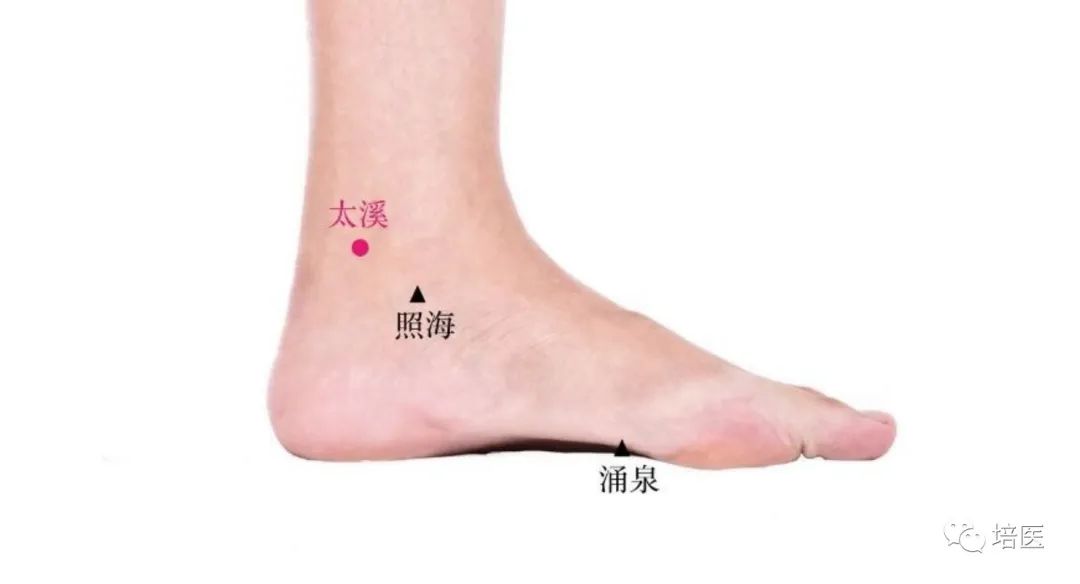
To locate the point, sit comfortably, placing the foot flat or lying on your back. Taixi point is located on the inner side of the foot, in the depression between the tip of the inner ankle and the Achilles tendon. Massage twice daily for 10-15 minutes each time.
2. Zhaohai Point
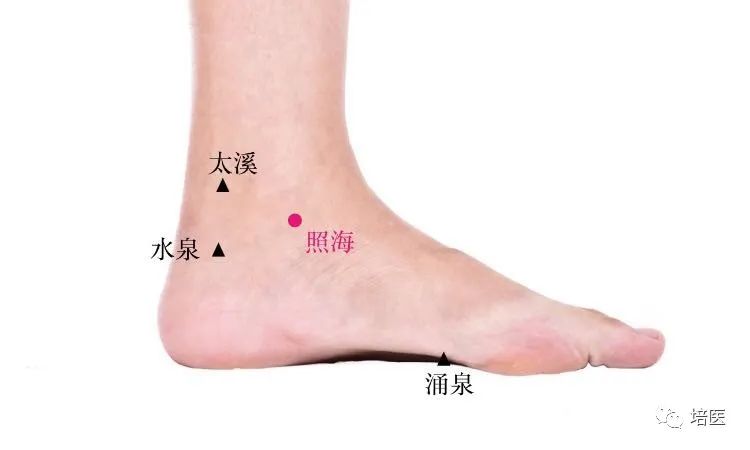
Zhaohai point is located on the inner side of the foot, below the tip of the inner ankle. Massaging Zhaohai point is suitable for individuals with a Yin deficiency constitution, particularly those with kidney Yin deficiency. While massaging Zhaohai point, one should keep the mouth closed and refrain from speaking. When saliva is felt in the mouth, it should be swallowed. Generally, after 5-8 minutes of gentle pressure, one will feel saliva in the throat.
Gua Sha Method to Improve Yin Deficiency Constitution
First, based on the sensitivity of individuals with a Yin deficiency constitution, use a lighter and slower scraping technique, applying less force than usual. Generally, perform scraping once every 3-7 days for 20-30 minutes each time. Specific methods include:
1. Scraping the Governing Vessel
The Governing Vessel runs along the midline of the back, from the Dazhui point (the most prominent point at the back of the neck) to the tailbone. Scraping the Governing Vessel can clear heat, reduce fire, and nourish kidney Yin.
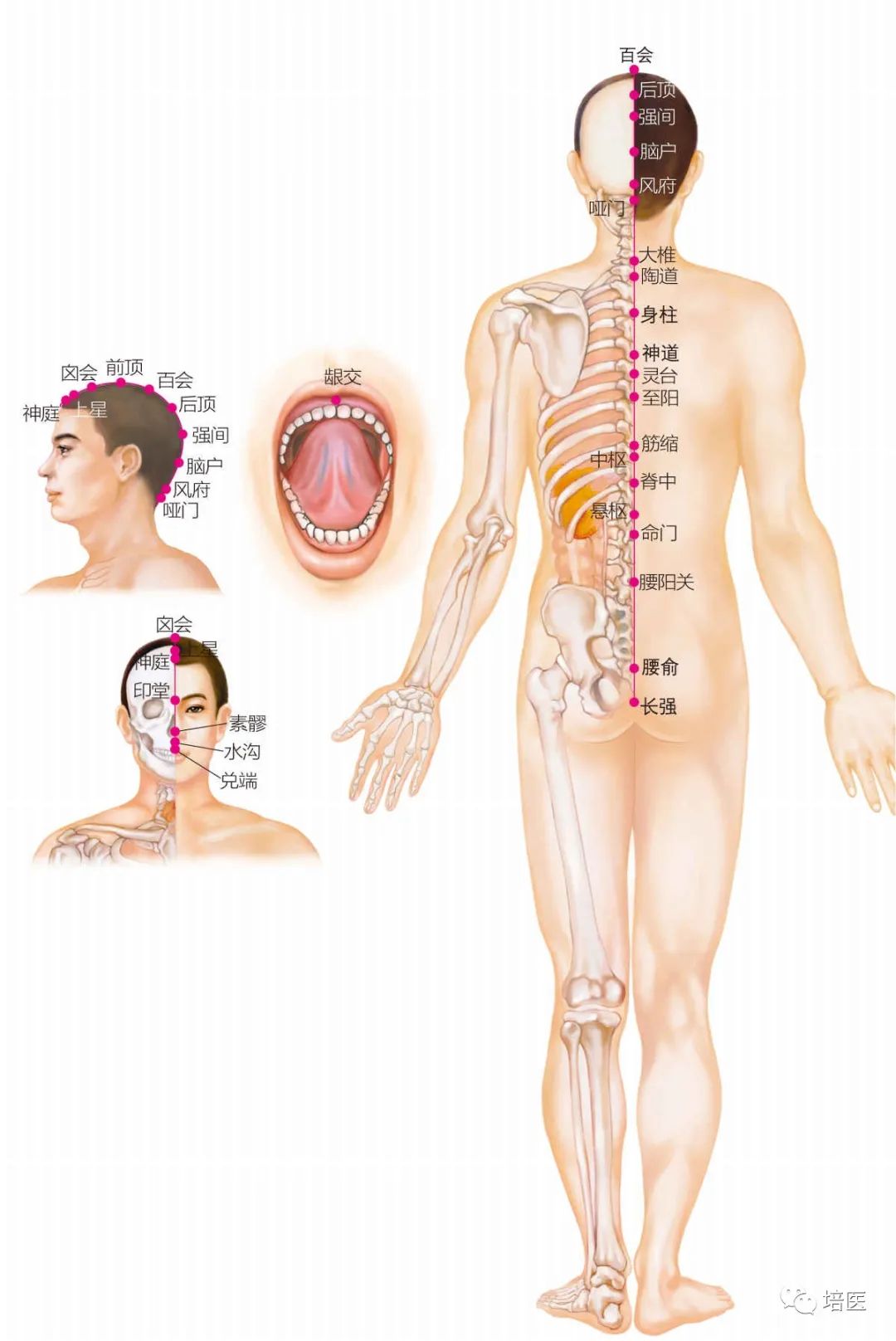
2. Scraping the Conception Vessel
The Conception Vessel runs along the midline of the front of the body, from the Guanyuan point (3 inches below the navel) to the center of the line connecting the two nipples. Guanyuan point is a major nourishing point in the body, with the effects of tonifying the source and replenishing Qi and blood. The Conception Vessel is known as the sea of Yin vessels; scraping it can regulate Qi and nourish blood, balancing Yin and Yang.
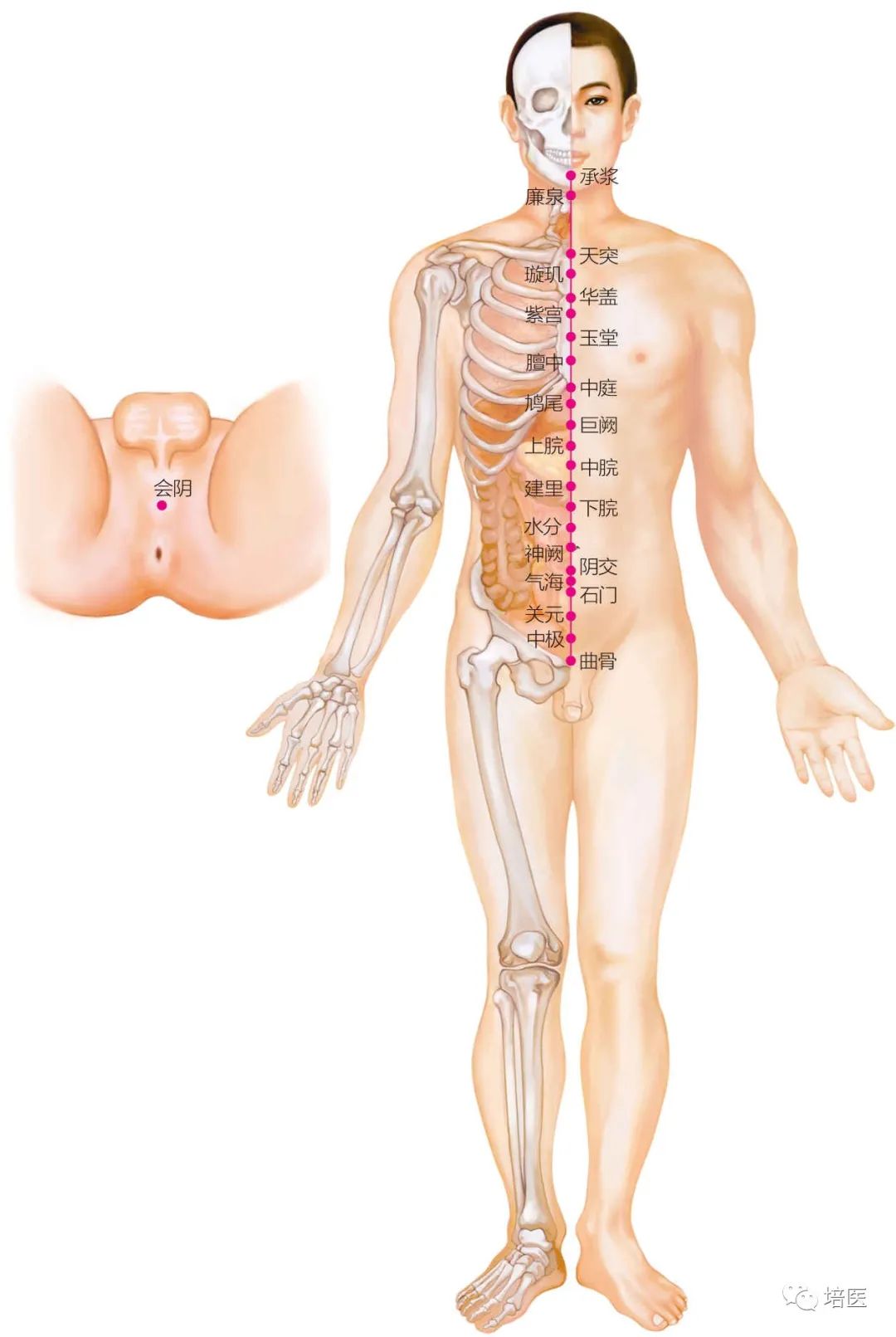
3. Scraping the Stomach Meridian
Scraping should cover the outer side of the lower leg to the tips of the second and third toes, focusing on the Zusanli point, which can strengthen the spleen and assist in the transformation of food and fluids.
4. Scraping the Spleen Meridian
Scraping should cover the inner side of the lower leg to the tip of the big toe, focusing on the Xuehai point (the bulge on the inner side of the quadriceps) and the Sanyinjiao point (3 inches above the tip of the inner ankle). This method can help transform spleen blood and nourish the Yin of the liver, spleen, and kidneys.
5. Scraping the Kidney Meridian
Scraping should cover the inner side of the lower leg to the tip of the little toe, focusing on the Yongquan point. This method can nourish kidney essence and reduce internal heat.
During scraping, the technique should be gentle, primarily aimed at unblocking the meridians, and one should not forcefully seek to produce bruises.
Medicinal Health—Nourishing Yin, Clearing Heat, Nourishing Blood, and Moistening Dryness
Individuals with a Yin deficiency constitution can achieve significant therapeutic effects through the use of traditional Chinese medicine.
Commonly used Chinese herbs that nourish Yin, clear heat, and generate fluids include: Bie Jia (鳖甲, Soft-shelled Turtle Shell), Gui Ban (龟板, Turtle Shell), Sheng Di Huang (生地黄, Rehmannia Root), Tian Dong (天冬, Asparagus Tuber), Mai Dong (麦冬, Ophiopogon Tuber), Tie Pi Shi Hu (铁皮石斛, Dendrobium), Nu Zhen Zi (女贞子, Ligustrum Fruit), Zhi Mu (知母, Anemarrhena), Huang Bai (黄柏, Phellodendron), Ling Zhi (灵芝, Reishi Mushroom), Sang Shen (桑椹, Mulberry), Yu Zhu (玉竹, Solomon’s Seal), and Sha Shen (沙参, Glehnia Root).
Commonly used Chinese patent medicines suitable for individuals with a Yin deficiency constitution include: Zuo Gui Wan (左归丸, Left Return Pill), Liu Wei Di Huang Wan (六味地黄丸, Six Flavor Rehmannia Pill), and Da Bu Yin Wan (大补阴丸, Great Yin Supplement Pill). For those with Yin deficiency and internal heat, Zhi Bai Di Huang Wan (知柏地黄丸, Anemarrhena and Phellodendron Rehmannia Pill) can be selected.
Zuo Gui Wan
Composition: Shu Di Huang (熟地黄, Cooked Rehmannia), Tu Si Zi (菟丝子, Cuscuta), Niu Xi (牛膝, Achyranthes), Gui Jia Jiao (龟甲胶, Turtle Shell Glue), Lu Jiao Jiao (鹿角胶, Deer Antler Glue), Shan Yao (山药, Chinese Yam), Shan Zhu Yu (山茱萸, Cornelian Cherry), and Goji Berries (枸杞子, Lycium Fruit).
Dosage: Oral administration, 6g of water honey pill per dose, 9g of small honey pill per dose, 1 pill of large honey pill per dose, 2-3 times a day.
Effect: Nourishes the kidneys and replenishes Yin.
Indications: True Yin deficiency syndrome, characterized by dizziness, weakness in the lower back and legs, nocturnal emissions, spontaneous sweating, dry mouth and tongue, red tongue with little coating, and thin pulse. This formula is commonly used for senile dementia, menopausal syndrome, senile osteoporosis, amenorrhea, and scanty menstruation due to kidney Yin deficiency and essence depletion.
Liu Wei Di Huang Wan
Composition: Shu Di Huang (熟地黄, Cooked Rehmannia), Shan Zhu Yu (山茱萸, Cornelian Cherry), Mu Dan Pi (牡丹皮, Moutan Root), Shan Yao (山药, Chinese Yam), Fu Ling (茯苓, Poria), and Ze Xie (泽泻, Alisma).
Dosage: Oral administration, 6g of water honey pill per dose, 9g of small honey pill per dose, 1 pill of large honey pill per dose, 2-3 times a day.
Effect: Nourishes Yin and replenishes the kidneys.
Indications: Kidney Yin deficiency syndrome, suitable for symptoms such as dizziness, tinnitus, weakness in the lower back and knees, tidal fever, night sweats, nocturnal emissions, dry tongue, red tongue with little coating, and thin pulse.
Da Bu Yin Wan
Composition: Huang Bai (黄柏, Phellodendron), Zhi Mu (知母, Anemarrhena), Shu Di Huang (熟地黄, Cooked Rehmannia), Gui Ban (龟板, Turtle Shell), and Pig Bone Marrow (猪髓).
Dosage: Oral administration, 6g of water honey pill per dose, 9g of small honey pill per dose, 1 pill of large honey pill per dose, 2-3 times a day.
Effect: Nourishes Yin and reduces internal heat.
Indications: Used for symptoms of internal heat due to Yin deficiency, such as tidal fever, night sweats, cough, tinnitus, and nocturnal emissions.
Zhi Bai Di Huang Wan
Composition: Huang Bai (黄柏, Phellodendron), Zhi Mu (知母, Anemarrhena), Shu Di Huang (熟地黄, Cooked Rehmannia), Shan Zhu Yu (山茱萸, Cornelian Cherry), Mu Dan Pi (牡丹皮, Moutan Root), Shan Yao (山药, Chinese Yam), Fu Ling (茯苓, Poria), and Ze Xie (泽泻, Alisma).
Dosage: Oral administration, 6g of water honey pill per dose, 9g of small honey pill per dose, 1 pill of large honey pill per dose, 2-3 times a day.
Effect: Nourishes Yin and reduces internal heat.
Indications: Zhi Bai Di Huang Wan is a commonly used Chinese patent medicine, derived from the classic Yin-nourishing formula Liu Wei Di Huang Wan, with the addition of Zhi Mu and Huang Bai to enhance the effects of nourishing kidney Yin and clearing excess fire. It is suitable for symptoms of internal heat due to Yin deficiency, such as tidal fever, night sweats, dry mouth and throat, tinnitus, nocturnal emissions, and short, red urine.
Further Reading
-
Comprehensive Atlas of Human Meridians and Acupuncture Points (High-Resolution Images), Save for Reference
-
400 Acupuncture Points, Explanation of Point Names
-
[Health Preservation] Strategies for Balanced Constitution
-
[Health Preservation] Strategies for Yang Deficiency Constitution
Recommended Columns
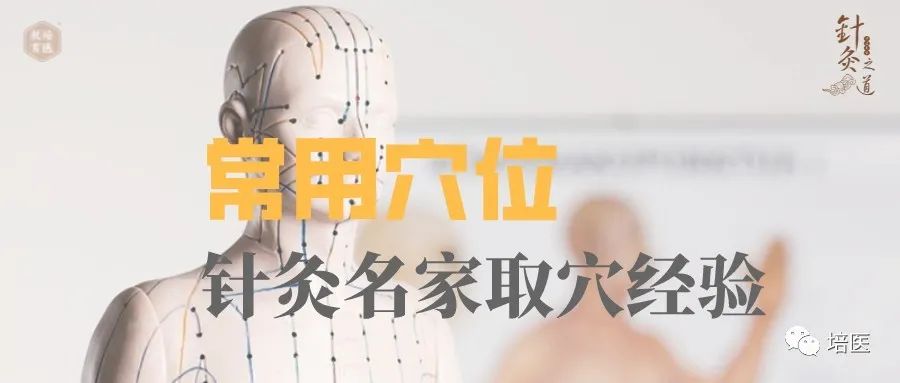
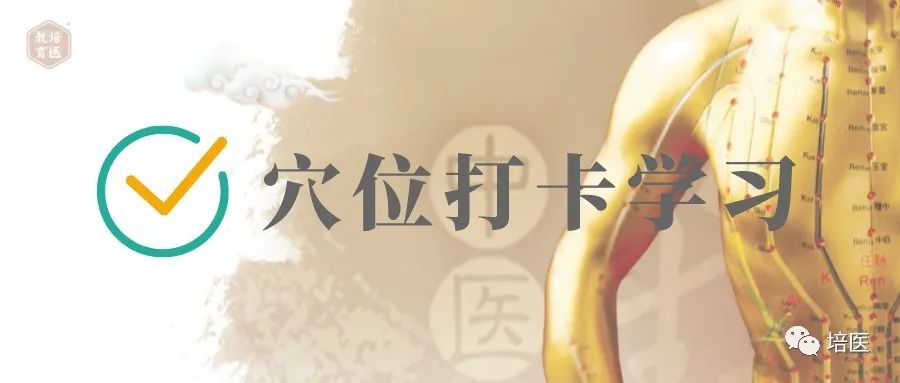
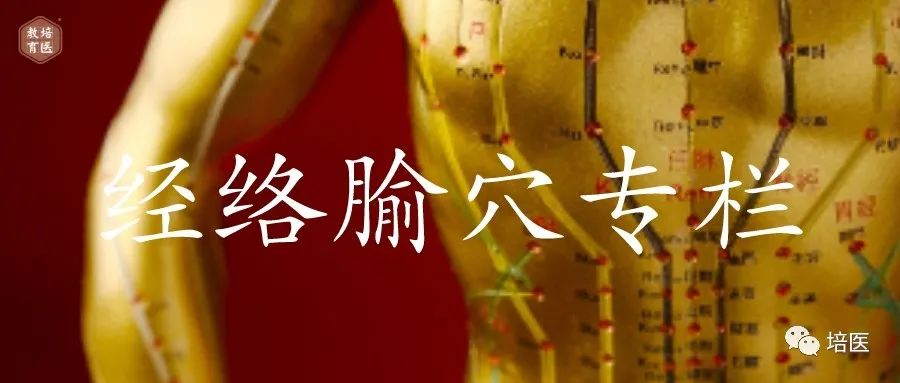
○ Note: This article is organized by Peiyi Education (www.tcmedu.com), excerpted from “Health Preservation Strategies for Constitution Types.” The various prescriptions and formulas mentioned are for reference and learning purposes only and should not be used as prescriptions. Please do not use them blindly; this platform does not bear any responsibility for any consequences arising from this!

